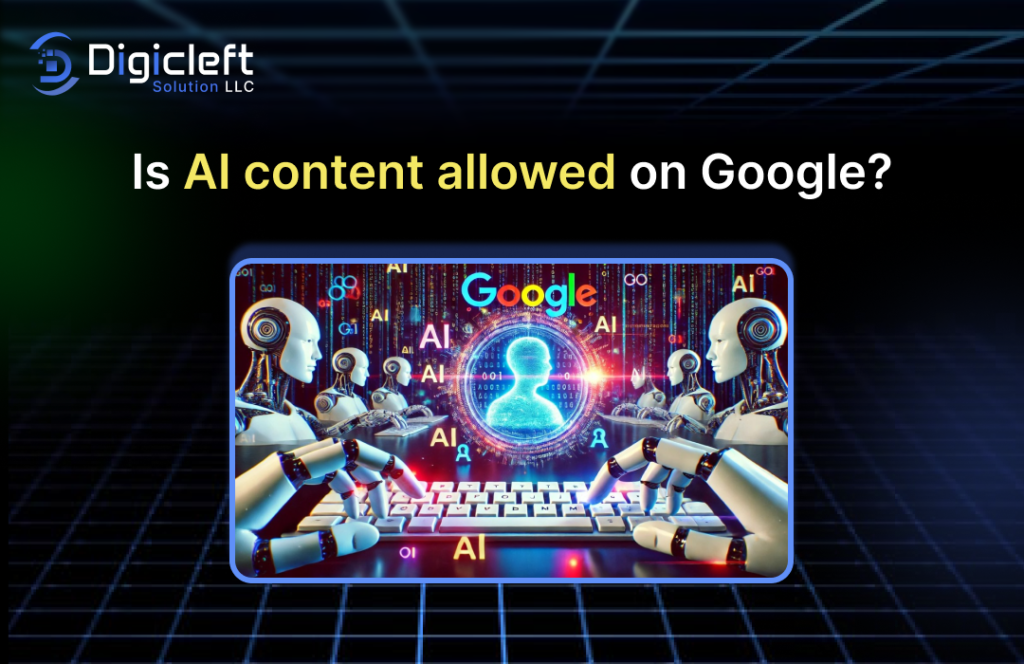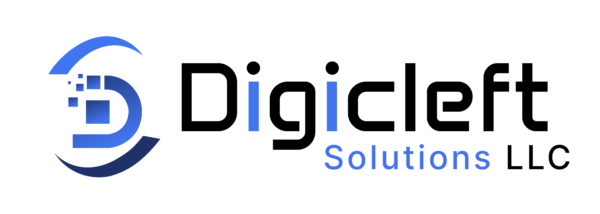
Overview:
With the rise of AI tools like ChatGPT and Jasper, many website owners, bloggers, and marketers are asking the burning question: Is AI content allowed on Google? The short answer is yes—Google allows AI content as long as it provides value to users and follows its quality guidelines. But there’s more nuance behind the answer, especially when it comes to ranking, penalties, and trust.
Let’s dive deep into Google’s evolving stance on AI content and what you can do to make sure your AI-generated articles perform well in search engines.
Understanding Google’s Policy on AI Content
· Evolution of Content Guidelines
Historically, Google focused on penalizing spammy, low-quality content, regardless of whether a human or machine wrote it. In the early days, any hint of automation raised red flags. But as natural language models improved, so did Google’s understanding of intent.
· Google’s Current Webmaster Guidelines
In 2023 and beyond, Google explicitly updated its Search Central documentation to confirm that AI-generated content is acceptable, provided it meets quality standards. Their main message is clear: content should be created for people, not for search engines.
Here’s what Google officially says:
“Using automation—including AI—to generate content with the primary purpose of manipulating ranking in search results is a violation of our spam policies.”
So, intent and quality are key. If you’re using AI responsibly to create helpful, original, and accurate content, you’re in the clear.
Google’s Take on AI-generated vs. Human-Written Content
Google doesn’t care whether a human or machine wrote a piece of content—it only cares whether it provides value. A high-quality AI-written article that solves a user’s problem will rank just as well (sometimes better) than a poorly written human piece.
Does Google Penalize AI-Generated Content?
What Constitutes a Penalty According to Google
Penalties usually occur when content:
- It is auto-generated for spammy purposes
- Contains nonsensical keyword stuffing
- Lacks originality or adds no real value
Google uses both manual reviews and machine learning systems to identify violations.
Examples of Penalized AI Content
- Thousands of poorly spun product reviews
- AI articles with no human oversight
- Content with inaccurate medical or legal claims
These pages often get de-indexed or lose rankings rapidly.
How Google Detects Low-Quality AI Content?
Google doesn’t rely solely on AI detection tools. Instead, it uses signals like:
- High bounce rates
- Thin content
- Duplicate phrases
- Overuse of certain keywords
That means even human-written garbage can get penalized.
The Role of E-E-A-T in AI Content Ranking
E-E-A-T stands for:
- Experience
- Expertise
- Authoritativeness
- Trustworthiness
It’s part of Google’s Search Quality Rater Guidelines and helps determine how reliable a page is, especially for Your Money or Your Life (YMYL) topics like health or finance.
Can AI Content Demonstrate Experience and Expertise?
Not directly. AI lacks first-hand experience, so it can’t authoritatively speak about personal journeys, reviews, or medical histories. However, AI can assist experts in drafting high-quality content that’s fact-checked and backed by sources.
Boosting Trustworthiness in AI Content
You can build trust in AI content by:
- Adding author bylines and bios
- Linking to trusted external sources
- Including updated statistics and references
How to Make AI Content Google-Friendly
Writing with User Intent in Mind
Focus on solving specific queries like:
- “How do I fix a leaking pipe?”
- “Is AI content allowed on Google?”
Answer these clearly, without fluff. Use headings, bullet points, and tables.
Balancing Automation with Editorial Oversight
Always review AI-generated text for:
- Factual accuracy
- Repetition
- Tone consistency
A human touch makes a big difference.
Best Practices for Publishing AI Content
Fact-Checking and Human Review
Even the best AI tools can generate outdated or incorrect information. Before publishing, ensure a thorough human review is conducted. This includes:
- Verifying facts from trusted sources
- Removing any repetitive or generic statements
- Adjusting the tone to fit your brand voice
A hybrid approach—AI-assisted writing and human editing—produces the most reliable content.
Structuring Content for SEO Success
To improve ranking potential, structure your content using:
- H1-H6 tags for clear hierarchy
- Bullet points and numbered lists
- Rich media like images, infographics, and videos
- Meta descriptions and alt text to enhance accessibility
These practices help both users and search engines understand your content better.
Using Proper Citations and Sources
Always cite reputable sources like:
- .gov and .edu domains
- Well-established news organizations
- Peer-reviewed journals
- Authoritative blogs or influencers in your niche
This boosts your credibility and aligns with E-E-A-T principles, especially for sensitive topics.
Benefits of Using AI in Content Creation
Scalability and Efficiency
AI tools can help you:
- Produce content faster
- Meet growing demands
- Maintain consistency across multiple platforms
Whether you’re running a blog, managing a business website, or publishing a product catalog, AI enables you to scale without sacrificing quality.
Cost-Effectiveness
Hiring multiple content writers can be expensive. With AI, you can reduce costs while still creating value-rich content, especially for repetitive tasks like meta descriptions, summaries, and FAQs.
Enhancing Creativity with AI Tools
Contrary to popular belief, AI tools can foster creativity. Use tools like:
They help you break writer’s block and generate new ideas that may not have occurred otherwise.
Common Misconceptions About AI Content and SEO
· All AI Content Is Spam
This is false. While spammy AI content exists, not all AI-written content is bad. Google supports high-quality AI content that serves user needs.
· Google Automatically Flags AI Content
Google doesn’t “flag” AI content simply because it’s AI. Their algorithms assess the quality and usefulness, not the method of creation.
· You Can’t Rank With AI Content
Many websites use AI-assisted writing and rank on the first page of Google search results. What matters is how you use AI:
- Are you delivering value?
- Are you solving a problem?
- Is your content easy to read?
If yes, you can rank.
Future of AI Content and Search Engine Optimization
· Google’s AI Updates and Their Impacts
Google has introduced AI-driven algorithms like BERT and MUM to understand natural language better. These updates:
- Reward content that matches search intent
- Punish keyword-stuffed, unnatural writing
- Value contextual depth over surface-level fluff
AI-generated content must align with these principles to thrive.
· Evolving Role of Human Editors
As AI evolves, so does the role of content editors. Humans are now:
- Strategists who guide AI tools
- Editors who shape voice and accuracy
- Brand guardians who ensure consistency
It is not about replacing writers; rather, it is about enhancing their capabilities.
· AI Integration in Google Search Features
Expect more:
- AI-powered snippets
- Rich results featuring conversational content
- Personalized SERPs based on search behavior
AI-written content that’s optimized for these features will have an edge in visibility.
Real-World Case Studies of AI Content Ranking
· AI Blogs That Rank on Page One
Websites like BankRate, CNET, and BuzzFeed have tested AI content (with human oversight) and seen success. Their secret? Quality control and transparency.
· Comparing Human vs. AI Content Performance
In controlled experiments:
- AI + human-edited content often performed better than human-only or AI-only content.
- Readers were often unable to distinguish between the two when quality standards were met.
· Lessons Learned from AI SEO Strategies
- Blend data-driven insights with storytelling
- Use AI to streamline repetitive tasks
- Never publish without fact-checking and refining
Conclusion:
Yes—AI content is allowed on Google and can even thrive when used ethically and strategically. The key isn’t whether content is human or machine-generated—it’s whether it’s helpful, accurate, and created with user intent in mind.
Use AI as a creative partner, not a replacement. Blend automation with editorial expertise, and you’ll have a winning SEO strategy that’s built for the future.
FAQs
Is AI content against Google’s rules?
No. Google permits AI-generated content, provided it adheres to quality and spam guidelines.
Can I use AI tools like ChatGPT to write blog posts?
Yes, but always review and edit them for clarity, accuracy, and tone.
Will Google rank AI content lower than human-written content?
Not necessarily. Google ranks content based on quality, not authorship.
How does Google detect poor AI content?
Through signals like poor grammar, low engagement, repetition, and lack of helpfulness.
Can AI content be used for YMYL topics?
Yes, but it requires more caution—cite credible sources and ensure expert review.
Should I disclose if my content was AI-generated?
It’s not mandatory, but transparency can enhance trust, especially in sensitive niches.


